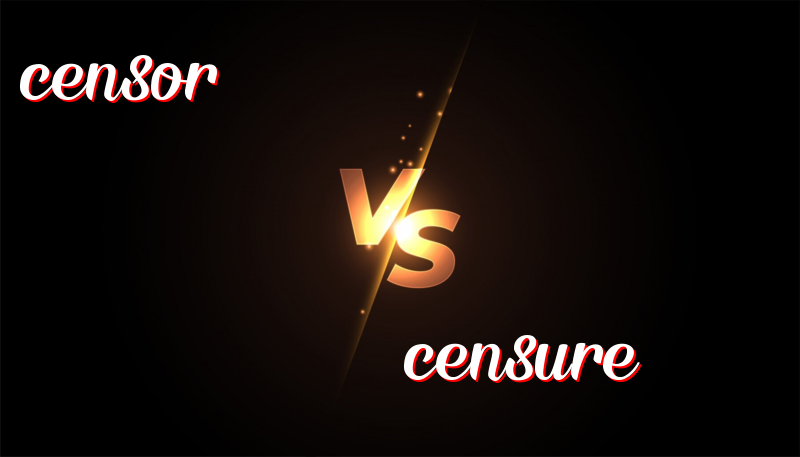英語單詞censor 與 censure的區別
August 06, 2024
詳細介紹單詞 “censor” 和 “censure” 之間的區別
在學習英語的過程中,”censor” 和 “censure” 是兩個經常被混淆的單詞。它們看起來相似,但在意思和用法上有很大的不同。下面將詳細介紹這兩個單詞的歷史、用法,以及記住它們區別的小技巧。
“Censor” 的歷史和用法
“Censor” 這個單詞起源於拉丁語 “censor”(古羅馬的審查官)。這個詞在英語中通常用來表示審查信息,即限制或刪除內容,尤其是媒體和出版物中的內容。審查的目的是為了防止某些信息的傳播。
“Censor” 的例句
- They decided to censor the controversial news article.
他們決定審查這篇有爭議的新聞文章。 - The movie was censored due to explicit content.
這部電影因為露骨的內容被審查。 - Governments often censor information during wartime.
政府經常在戰爭期間審查信息。 - The book was heavily censored before its release.
這本書在發行前被嚴重審查。 - Some social media platforms censor posts that violate their policies.
一些社交媒體平台會審查違反其政策的帖子。
“Censure” 的歷史和用法
“Censure” 同樣源自拉丁語 “censura”,意思是”指責”或”譴責”。這個詞在英語中的使用主要用來描述一種嚴厲的批評或責備,通常是來自官方或權威機構的正式聲明。
“Censure” 的例句
- The politician was censured for his inappropriate remarks.
這位政治人物因不當言論被譴責。 - The board of directors censured the CEO for his misconduct.
董事會譴責了CEO的不當行為。 - He faced censure from his colleagues after the incident.
事件發生後,他遭到了同事的譴責。 - The journalist was censured for spreading false information.
這位記者因散布虛假信息而被譴責。 - The teacher received a formal censure for her actions.
這位教師因其行為受到了正式譴責。
記住區別的小技巧
記住 “censor” 和 “censure” 的區別有一個簡單的小技巧:”Censor” 和 “content”(內容)有關,而 “censure” 和 “criticism”(批評)有關。這樣可以幫助你記住 “censor” 是關於刪除或限制內容,而 “censure” 是指責備或譴責。
總結
“Censor” 主要用於描述審查信息、內容、媒體等;而 “censure” 則用來描述來自官方或權威機構的譴責或批評。記住這個小技巧,可以幫助你在使用這些單詞時不會混淆。

Leave a Reply
You must be logged in to post a comment.